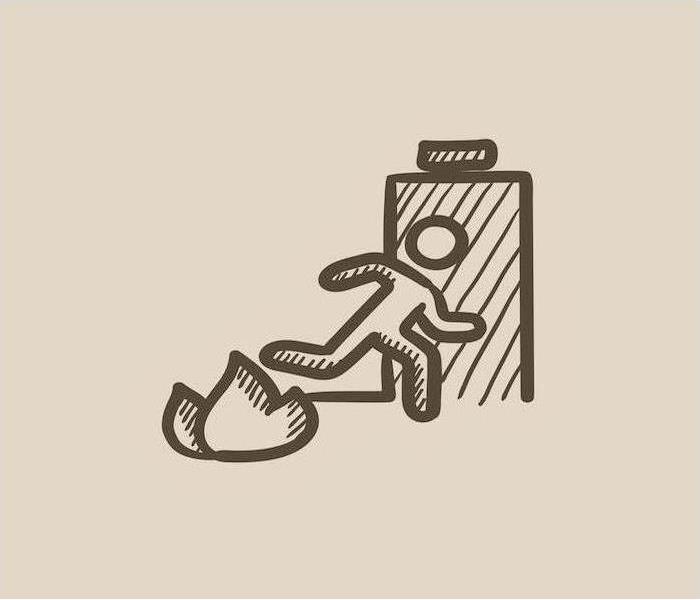Escaping a Fire
4/21/2020 (Permalink)
Causing more than 2,500 deaths and 12,600 injuries each year in the United States, house fires are extremely dangerous for those that are unprepared for the event. But they are preventable.
To be prepared should a fire occur in your home, it’s important to know what to do:
- Before a fire
- During a fire
- After a fire
To ensure that your family remains safe throughout the ordeal.
It takes just two minutes for a fire to become life-threatening and just five minutes for a residence to become consumed by a fire. While the flames are what most people fear, that’s not what’s most dangerous as the heat and smoke do most of the damage. This is because the inhalation of extremely hot air can sear the lungs. A fire also has the ability to produce poisonous gases that can make you disoriented and drowsy making them all the more dangerous. In fact, the leading cause of fire deaths is asphyxiation which exceeds burns by a three to one ratio.
Preparing for a Fire
To make sure you’re prepared in the event of a fire, there are certain precautionary measures that must be taken to ensure your safety. The most important step is to create an evacuation plan for your family. Every second counts when a home is filling up with smoke so you need to know the fastest way out. Creating a plan and going over it with each member of your family will ensure that everyone can get out safely.
When developing your evacuation plan, make sure that you have two routes to escape each room in case one is blocked. Once your plan is formed, you should practice the plan at least twice a year. Being prepared for a potential fire means making sure that windows aren’t locked, screens can be taken out quickly, and that security bars can be opened. You should also have your family practice feeling around in the dark with their eyes closed replicating the environment they’ll be in if there’s a fire and teach the children not to hide from firefighters who are there to help.
The most important device to making sure you can safety escape a fire is a smoke alarm. Having working smoke alarms will significantly increase your chances of surviving the fire. To make sure that your smoke alarm will alert you of a fire in the home, test the batteries monthly, replace the batteries at least once a year, and replace the smoke alarm every eight to 10 years.
How to Escape a Fire
If a fire does occur in your home, you should escape the building as quickly as possible. However, there are some things you need to remember to safety evacuate. The first step is to get to the floor and crawl to the exit as heavy, toxic smoke and poisonous gases gather initially at the ceiling. When you get to a door, feel the doorknob and door before opening it. If either the doorknob or door is hot, you should leave it closed and go to your alternate way out. You should also leave the door closed if smoke is coming from around it. If you are able to open the door, do so slowly and be ready to shut it quickly should heavy smoke or fire be on the other side.
But what happens if you can’t get out? If the event occurs where you’re trapped in a room, cover the vents and cracks around any doors with cloth or tape to keep any smoke out. Then call the fire department and tell them where you are. You can use a light colored cloth or flashlight to get the attention of the firefighters. If you catch on fire yourself, simply stop, drop, and roll with your hands over your face to put yourself out.
What to Do After a Fire
If you’ve suffered a fire in your home rendering it uninhabitable and you have nowhere to go, contact your local disaster relief service like The Red Cross. If you have fire insurance, call the insurance company for details on protecting your property. You also should contact the professionals at SERVPRO of West Bevard to remediate the situation as soon as possible. The sooner they begin the restoration process, the more of your home and possessions will be salvaged.
A house fire is a devastating event that can lead to serious injury or death if you’re not properly prepared. These tips will ensure that you’re prepared for a fire and that you and your family can escape safely.






 24/7 Emergency Service
24/7 Emergency Service
